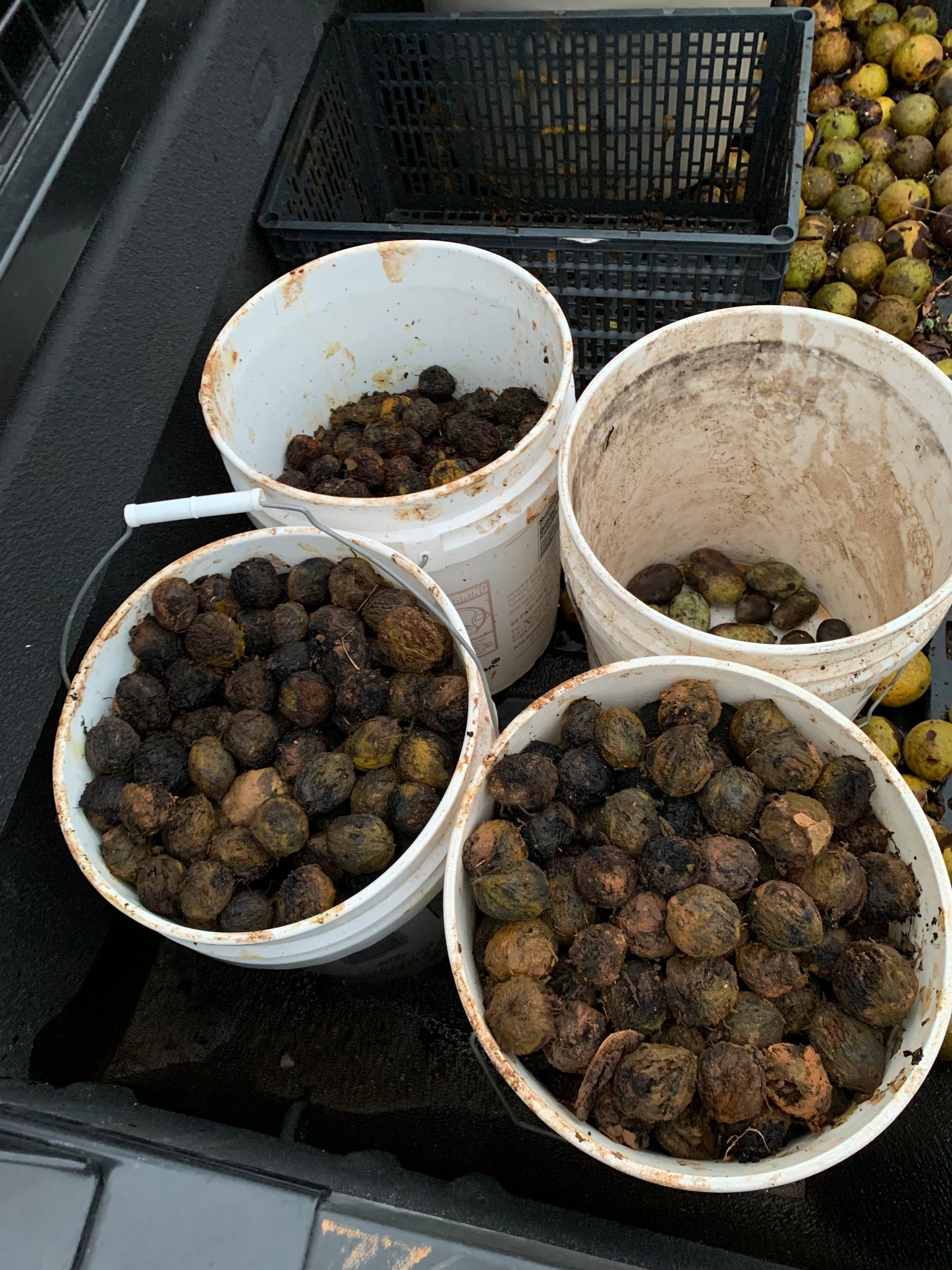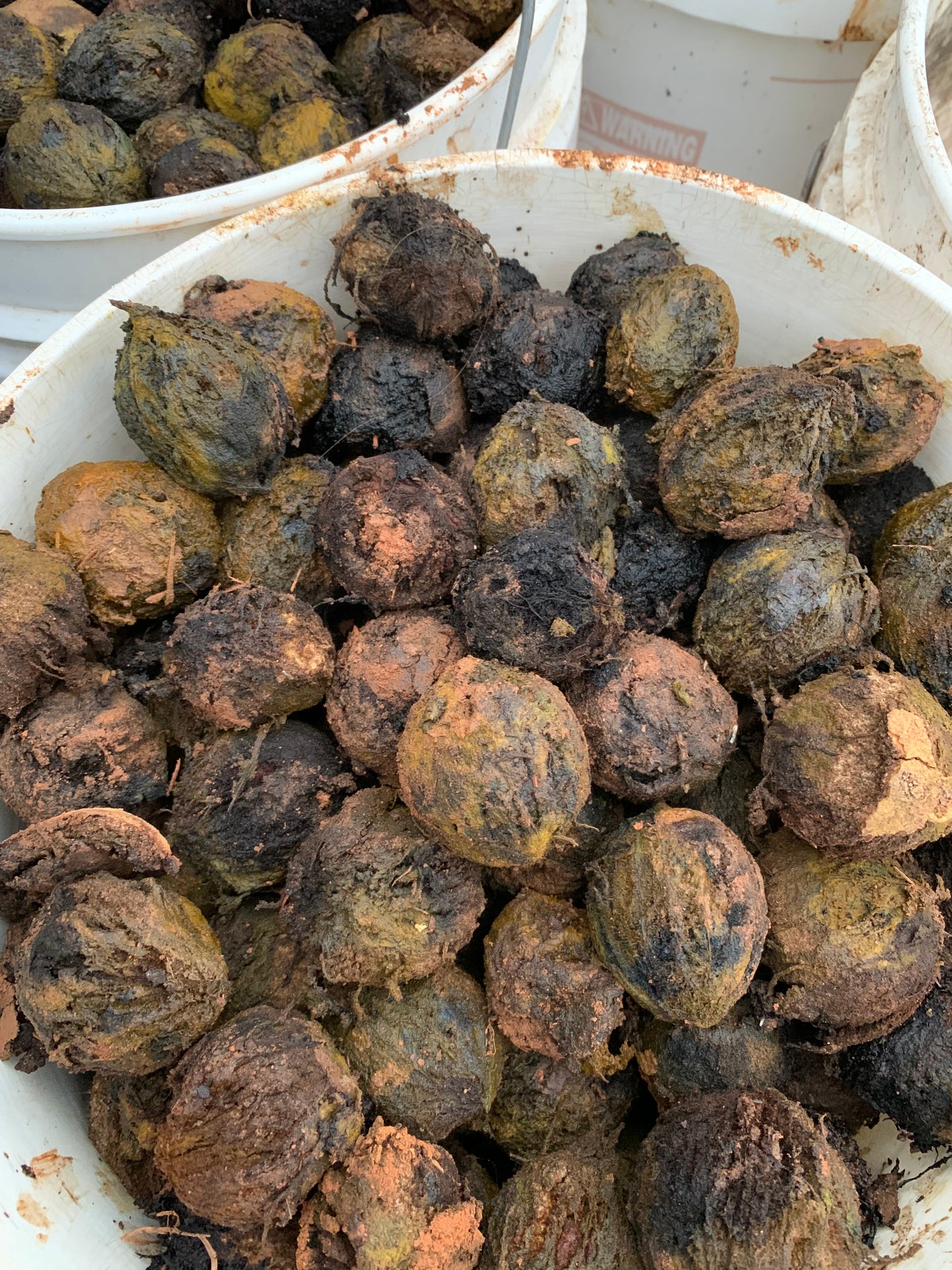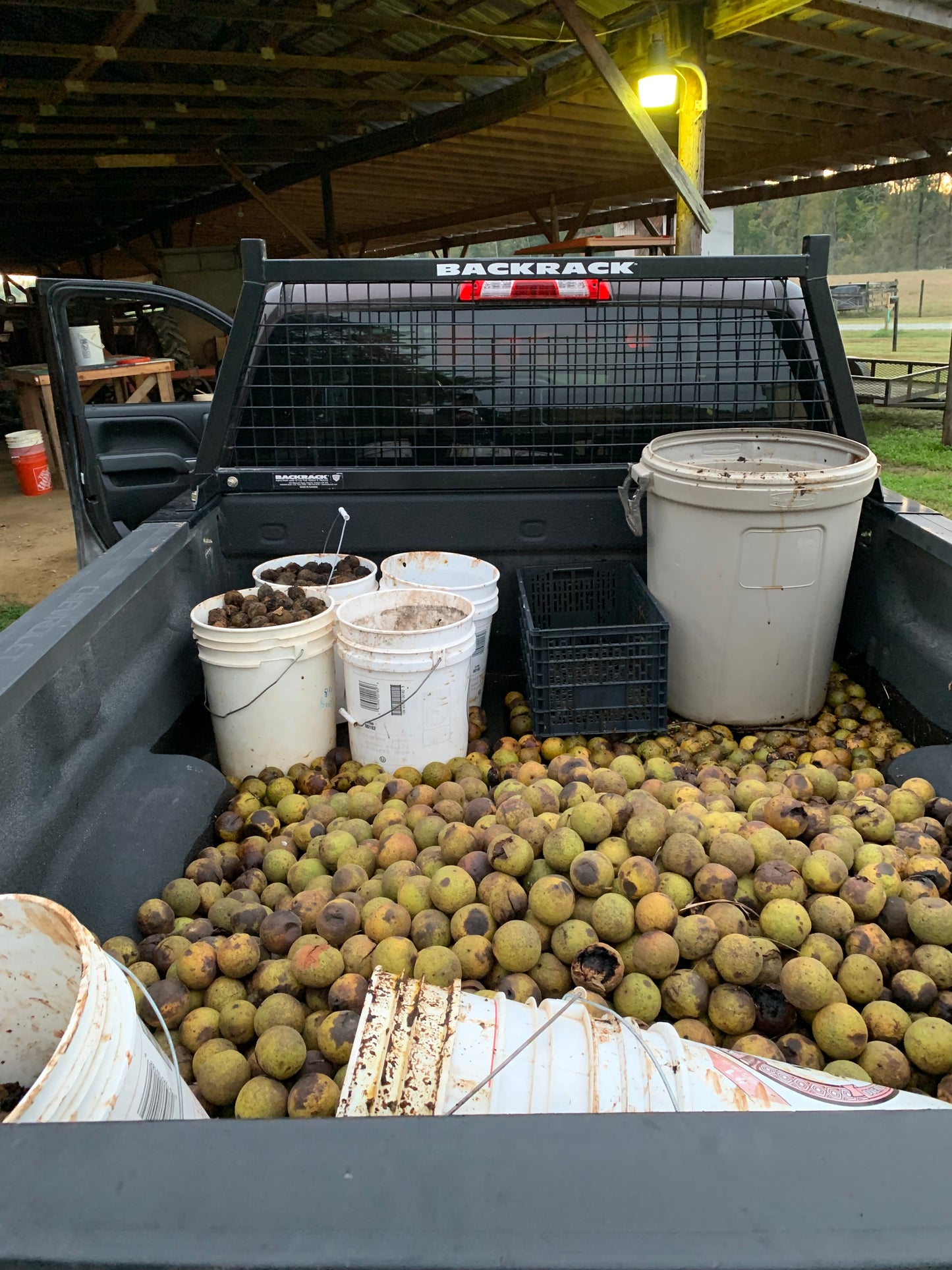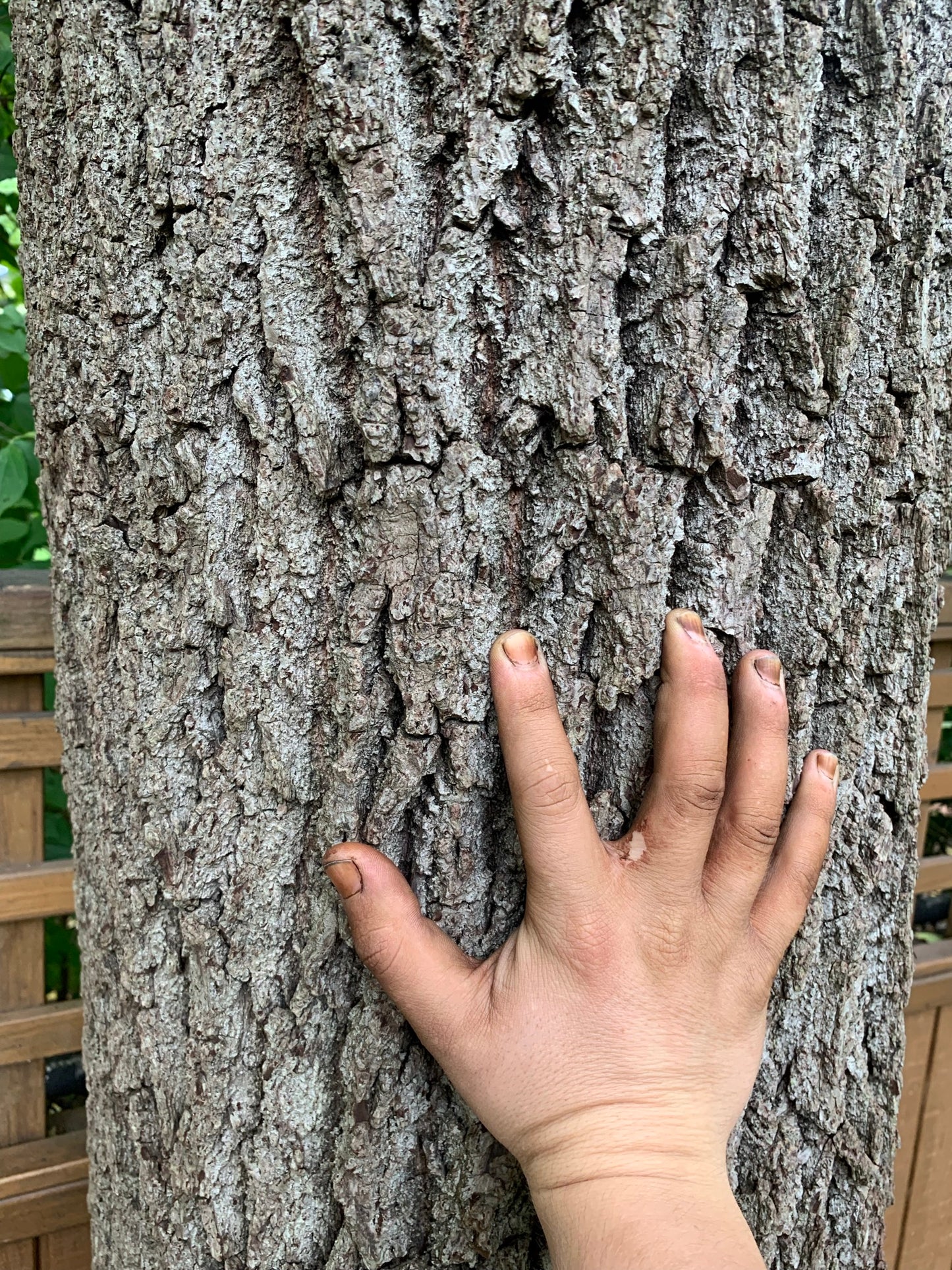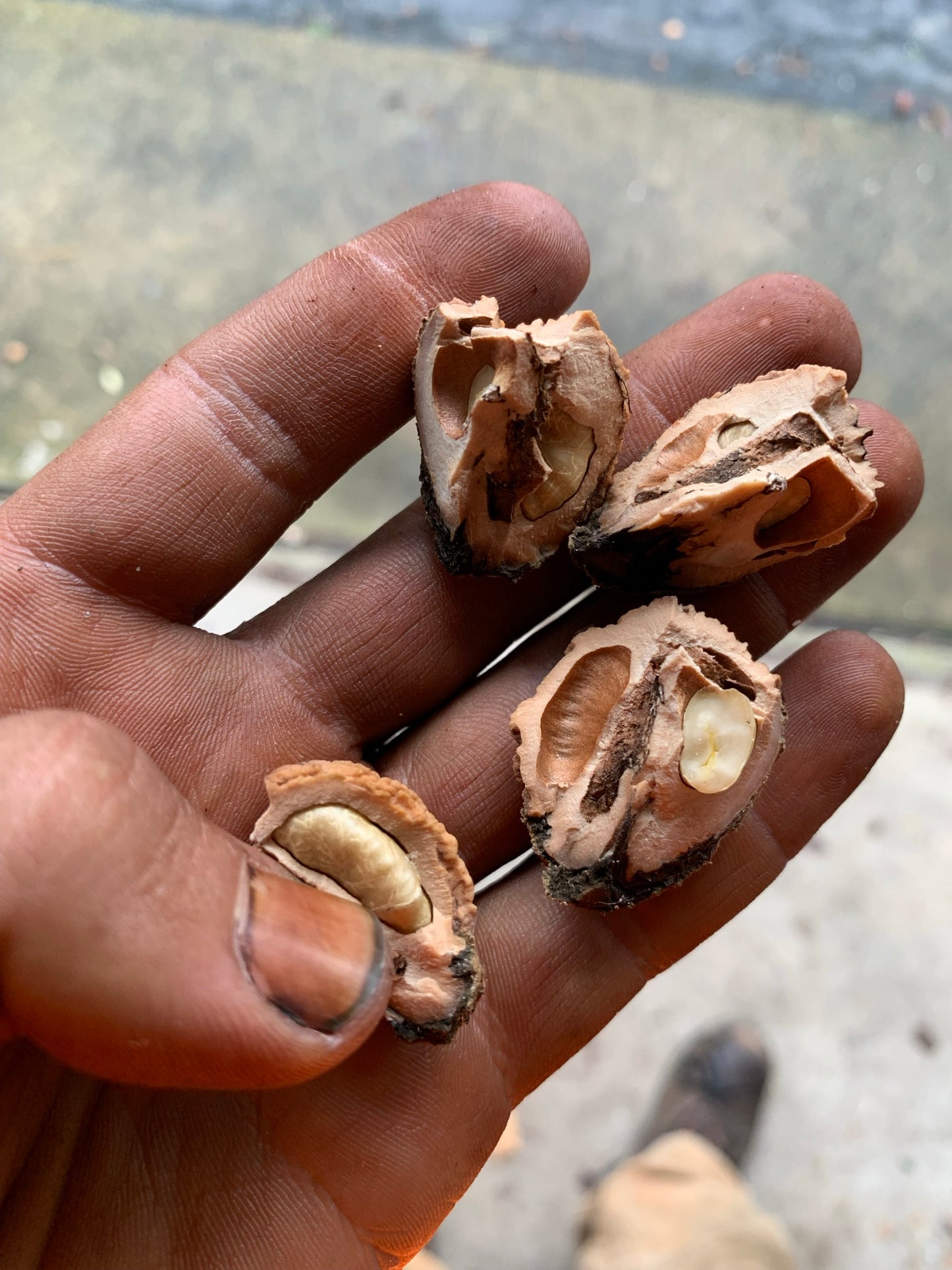Living Soil Tree Farm
Black Walnut Seed
Black Walnut Seed
Couldn't load pickup availability
Black Walnut (Juglans nigra) SEEDS
These black walnut seeds are very fresh, they were harvested in fall of 2025. Black walnut seed should not dry out completely and must be cold stratified to germinate. We store our seed in buckets of woodchips outdoors. This keeps them moist and begins the process of stratification. Seed will benefit greatly from continued cold stratification after shipping and before planting.
Black walnut is a large tree native to the east coast of the US. Typical max heights range from 100-130 feet. Grown out in the open trees will be shorter and wider. Commonly found in riparian areas the black walnut likes water but will grow in drier areas (although growth will be slower). The trees can self-pollinate but to get good nut production multiple trees are required. The wood in incredibly valuable and especially beautiful. The nuts have long been eaten by humans and wildlife. Select cultivars have been bred for timber and for nut production. The majority of this selection work occurred over hundreds of years of relationship between walnut trees and native peoples. The nuts are extremely nutritious and are the highest proteins content of any tree nut. They are also very high in o-mega 3 and polyunsaturated fats as well as minerals, vitamins, and antioxidants. The hulls can be used to make an anti parasitic tincture. Grubs which grow in the husk can be used as chicken feed which also helps to deworm the chickens. The shade cast by black walnut is not very dense and allows for other native understory plants such as paw paw and elderberry to thrive.
2025 seed selection:
Victory Lane tree
this seed comes from a black walnut at the location of our Virginia Nursery. We are located just outside of Martinsville in the mountainous south western part of the state. This tree has two main stems and its origin is unknown. It sits near a farm house alongside 3 other black walnut trees and is not far from the remains of an old fruit orchard. It may have been intentionally planted but we can’t be sure. What we are sure of is that the nuts are very good compared to any other black walnut trees around the farm. This tree makes nuts that crack out into 4 pieces of walnut rather easily. The shell is thick but the nut pieces fall out of the shell crevices nicely. In 2024 (which was a drought year) this walnut was the only tree on the farm with any significant amount of nuts. In 2025, a big year for walnut around these parts, this tree was loaded. The nuts in 2025 are much bigger than in 2024. Not the biggest I’ve ever seen but certainly large. This is the second year we have observed this tree.
2023 seed selection:
Our seed comes from wild and urban trees growing within 1 hour of the nursery. In general, we select seed from as many trees as possible to ensure genetic diversity. That said we focus the bulk of our seed collection from trees with one or more of the following characteristics: large old trees (they have seen the most extreme weather), large nuts, heavy nut production, good tree health, thinner shell (if we can find them!), ease of cracking. The seed must be cold stratified to experience good germination rates. This can be accomplished in a fridge but we opt for outdoor stratification either in garden beds or buried in buckets. If you want to learn more about storing walnut seed checkout our other social media. As with other trees black walnuts love mulch and being planted near other woody plants (so long as they all get good access to sunlight!).
A note on the potential future of east coast walnut production.
There are cultivars of black walnuts with thinner shells and larger nuts. Many of these varieties crack out much easier than typical wild black walnuts. Future breeding could improve these qualities. Currently at the nursery we are working to plant out seedlings with hopes graft some of these cultivars in the future. We are very excited about the potential food source black walnuts provide. Wild trees already offer an extreme abundance of food but are difficult to process in large amounts at a small scale. Industrial equipment exists that allows us to process wild black walnuts easily at a community scale. As a culture we have not invested in this infrastructure so it is uncommon. Equipment can easily overcome the difficulties of wild walnuts but breeding work could also create black walnuts that crack out as easy as the English walnut. Black walnut grow prolifically on the east coast without any help from humans. The calorie and nutrient potential of black walnut culture on the east coast is hard to overstate. To get there we need to invest our time and resources into breeding and infrastructure. Seems worth doing to me!
We would love to talk about black walnuts with you. If you have questions or comments please reach out. If you come across a black walnut tree with superior qualities we would love to trade for seed or cuttings to incorporate into our work here!
BOTANICAL SAMPLE - NOT GERMINATION TESTED
Due to stratification requirements and in order to offer fresh seed we do not germination test our black walnut seed. These seeds are offered as a botanical sample. In our experience growing out 100s of black walnut trees from these seed sources each year germination is generally very high.
Materials
Materials
Shipping & Returns
Shipping & Returns
Dimensions
Dimensions
Care Instructions
Care Instructions
